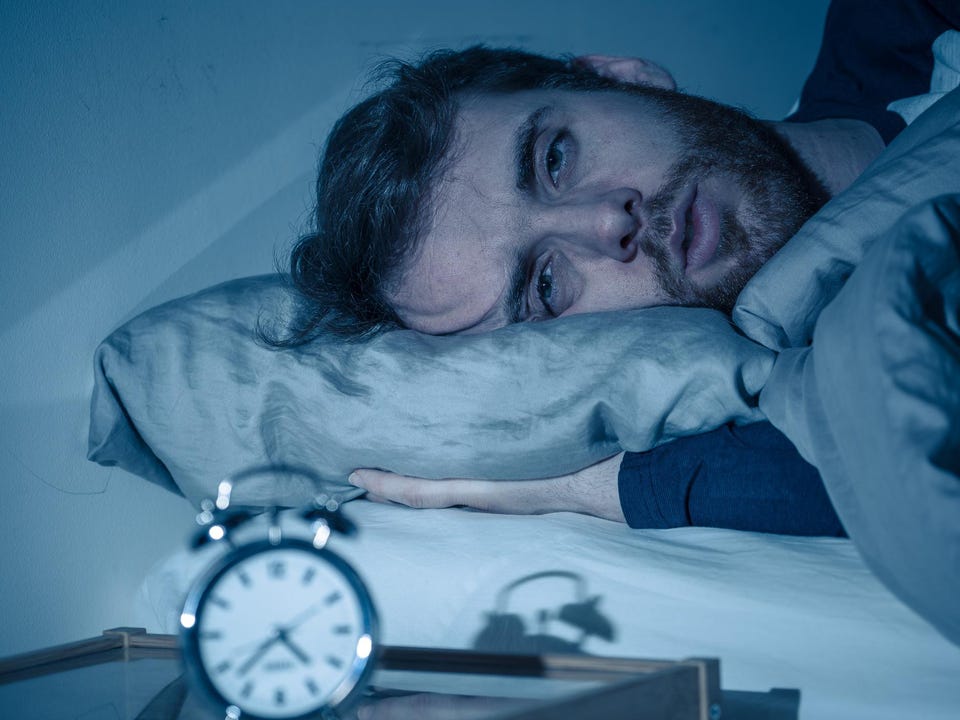Healthcare Night Owls Are More Susceptible Than Early Birds To Type 2 Diabetes, Study Shows Daryl Austin Contributor Opinions expressed by Forbes Contributors are their own. I cover current healthcare stories and health history. Following New! Follow this author to stay notified about their latest stories.
Got it! Sep 20, 2022, 09:00am EDT | New! Click on the conversation bubble to join the conversation Got it! Share to Facebook Share to Twitter Share to Linkedin If you’re among the 30 percent of people that likes to stay up late, there may be reason to consider changing your bedtime routine. A team of researchers at Rutgers University just published a study in the journal Experimental Physiology that shows that “night owls” – people who like to stay up late – are more susceptible to type 2 Diabetes than people who get to bed earlier. While about 1.
6 million Americans have type 1 diabetes – a disease that remains incurable and unpreventable , nearly 30 million people in the U. S. have type 2 diabetes – a disease which is heavily affected by one’s diet or lifestyle.
Type 2 diabetes is a condition where blood glucose (sugar) is elevated and can lead to blood vessel damage and contribute to cardiovascular disease. Type 2 diabetes is thought to be caused by insulin resistance in the body that occurs when the body doesn’t respond well to the hormone insulin. Two causes that have been used generally to explain the development of insulin resistance include a poor diet (too much sugar or excessive calories) and a lack of physical activity.
“However, more recently, a lack of sleep has been raised as another critical behavioral factor contributing to insulin resistance,” says Steven Malin, co-author of the Experimental Physiology study and an associate professor in the department of kinesiology and health at Rutgers University. Malin explains that while sleep is generally known to be important for lowering the risk of type 2 diabetes, “embedded within sleep is the idea we get enough and good quality. ” His research shows that people who have a tendency to stay up late are, “reported to have higher risk of obesity, type 2 diabetes and cardiovascular disease when compared with people who went to bed earlier.
” One explanation he has about why this happens to night owls in particular is because their lifestyle likely interferes with their circadian rhythms – the body’s sleep/wake cycle. For instance, though night owls prefer to stay up late, most working adults still have to wake up early enough to get the kids to school/get to work on time. As a result, Malin says night owls aren’t getting enough sleep or enough quality sleep which, “changes their physiology and increases disease risk.
” MORE FOR YOU CDC: Salmonella Outbreak Has Left 279 Ill, 26 Hospitalized In 29 States Canadians End Up In ICU After Attending ‘Covid Party’ White House Mandates Pfizer Vaccines for Millions of Citizens . . .
Before the FDA Clinical or Safety Reviews Have Been Made Public By measuring the metabolisms and activity levels of study participants for one week throughout each day and while they slept, Malin and other researchers found that those who stayed up late had a reduced ability to use fat for energy; meaning fats may build up in the body causing an increased risk for type 2 diabetes and cardiovascular disease. Conversely, people who are “early birds” – those who prefer to wake up early and are more active in the morning – rely more on fat as an energy source and demonstrate higher levels of aerobic fitness. As such, “targeting a healthy diet, a degree of activity and an improved sleep pattern is thought to prevent the transition from healthy to insulin resistance and type 2 diabetes,” Malin says.
He explains that the best thing night owls can do is to get to bed earlier, but also says that they may be able to at least offset some of the potential negative outcomes from their late-night lifestyle by a committing to greater degrees of physical activity the next day. “Moving throughout the day is a great way to foster health,” he says. “This doesn’t have to be intense movement either.
Breaking up sedentary behavior for about 2 minutes every hour during the day or taking 10–15-minute brisk walks after meals can go a long way,” he adds. Malin also advises avoiding stressful or vigorous activity late in the evening so the body can better prepare for sleep, and to stay away from stimulating foods (such as caffeine or high amounts of sugar) and screens too close to bedtime. “The blue light of screens can ‘trick’ your circadian clock into staying awake,” he warns.
Above all, adjusting one’s sleep habits to get to bed even a little bit earlier can make a world of difference. “Go to bed 15 minutes earlier, then wake up 15 minutes earlier the next day,” Malin suggests. “Take small steps towards shifting to be an early bird.
” Follow me on Twitter . Daryl Austin Editorial Standards Print Reprints & Permissions.
From: forbes
URL: https://www.forbes.com/sites/darylaustin/2022/09/20/night-owls-are-more-susceptible-than-early-birds-to-type-2-diabetes-study-shows/



